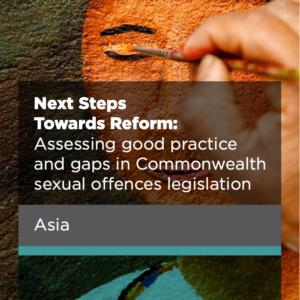Bangladesh’s sexual offences laws are found in the Penal Code 1860 (as amended) (PC) and the Prevention of Oppression Against Women and Children Act 1995 (as amended) (POWC). The Evidence Act 1872 (EA) contains the rules of evidence that pertain to sexual offences. Bangladesh does not have comprehensive laws to address sexual violence.
While there have been some reforms in this area, most recently in 2003 to the POWC, many of the sexual assault provisions assessed in this research do not meet good practice. These include, for example the definition of rape which is limited to penile penetration and does not take into account the full range of sexual acts that can violate the sexual integrity of either female or male victims. The law does not define consent to sexual activity as free and voluntary agreement by a person, does not specify that evidence of resistance to the assault, such as physical injuries to the body, is not necessary to prove that sexual activity took place without consent, or specify that evidence of a complainant’s prior sexual conduct is inadmissible.
There is only one specific child sexual assault offence and it applies only to girls under 14. The age of consent for opposite-sex sexual activity in Bangladesh is 14 years for girls. There is no minimum age of consent for boys in the legislation, which is not good practice and is discriminatory on the ground of sex.
Bangladesh criminalises consensual same-sex sexual activity between males and the PC uses language that is discriminatory and stigmatising such as ‘carnal intercourse against the order of nature’. Laws that criminalise consensual same-sex sexual activity should be repealed and all non- consensual sexual acts, including anal ‘rape’, should be included in the standard sexual assault provisions, such as ‘rape’ and ‘sexual assault’, as well as in child sexual offences. All of these crimes should be gender-neutral.
Bangladesh is a state party to relevant international human rights treaties, including the Convention on the Rights of the Child, Convention on the Rights of Persons with Disabilities, the Convention on the Elimination of All Forms of Discrimination against Women, Convention against Torture and Other Cruel, Inhuman or Degrading Treatment or Punishment and the International Covenant on Civil and Political Rights.
Read more about the criminalisation of LGBT people in Bangladesh.
The full assessment of Bangladesh is available here.



